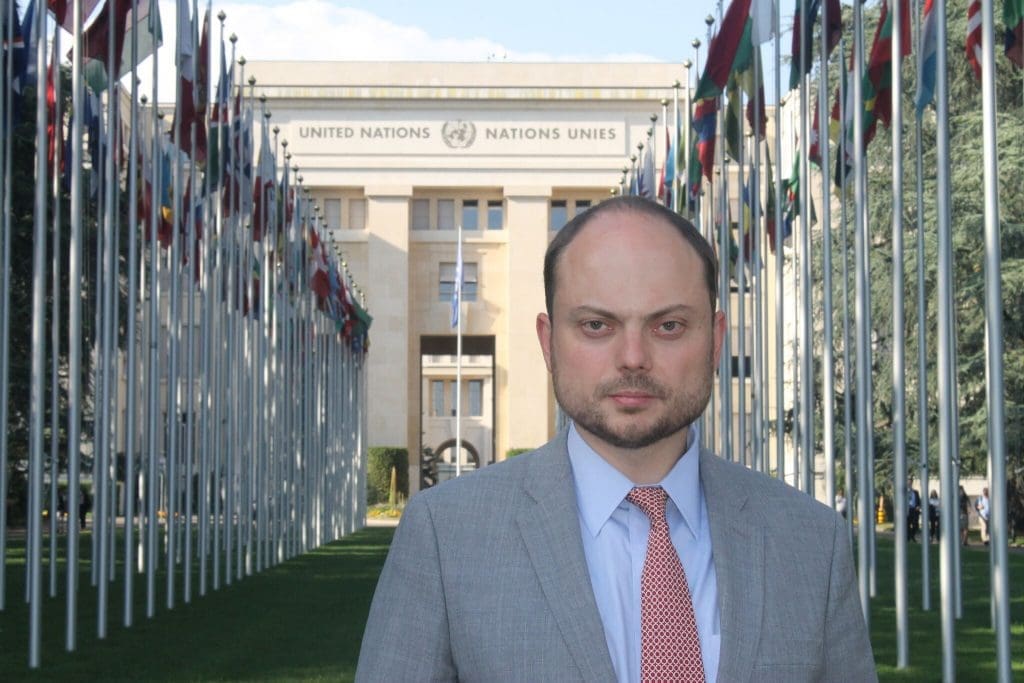Vladimir Kara-Murza Invokes Alexey Pichugin During Testimony Before Committee of Danish Parliament
November 6, 2018
Earlier this summer, Vladimir Kara-Murza, human rights activist and president of the Boris Nemtsov Foundation for Freedom, invoked Alexey Pichugin during his prepared remarks before the Foreign Affairs Committee of the Danish Parliament in support of a proposed Magnitsky Law for Denmark.
The Magnitsky Law is legislation modeled after a 2012 law enacted by the United States under which it imposed asset freezes and visa bans on Russian officials linked to the death of Russian tax accountant Sergey Magnitsky, who died in a Moscow prison in 2009. In 2016, the U.S. enacted the Global Magnitsky Act, allowing for the application of the law on a global scale.
In his testimony, Mr. Kara-Murza argued that while two decades ago, the Russian Federation stood as a full member of the international community that guaranteed its citizens the right to a fair trial, freedom of expression and assembly, the right to free elections, and other basic rights, “[t]oday, nearly all of these fundamental rights and freedoms are a dead letter.”
In today’s Russia, “arbitrary detention, slanderous propaganda, electoral disenfranchisement, and even long term imprisonment” – as in the case of Mr. Pichugin, have become all too common.
Said Mr. Kara-Murza:
“The number of long-term political and religious prisoners in Russia, according to the Memorial Human Rights Centre, now stands at 158 – a figure comparable with the late Soviet period. They include Oleg Sentsov, a Crimean Film director who protested against the annexation (…); Oleg Navalny, the brother and co-defendant of Alexei Navalny; and Alexei Pichugin, the remaining hostage of the Yukos case who, after fifteen years, is Russia’s longest-serving political prisoner. Mr. Pichugin has won his case at the European Court of Human Rights, but the Russian government has refused to abide by the decision, as it has in many other instances.”
Referencing OSCE and Council of Europe efforts to investigate the Russian government’s reprisals against political opponents, Mr. Kara-Murza asked representatives in both houses of the Danish Parliament to “support these efforts and not to allow the Russian authorities to forget and move on.”
A Magnitsky Law for Denmark, he said, would further help end the “corrosive practice” of affording “the same people who undermine and violate the most basic norms of democracy and the rule of law in Russia (…) the protections and privileges provided by democracy and the rule of law in the West.”
Related Content
-
Video: Vladimir Kara-Murza Discusses Russian Human Rights Situation, Pichugin at Event in Canada

November 5, 2018 During a recent presentation at the Canadian Museum for Human Rights in Winnipeg, Canada, human rights activist […]
-
Vladimir Kara-Murza Invokes Alexey Pichugin’s Plight in Hearing at British Parliament While Calling for Enactment of Magnitsky Act

In a hearing before the Conservative Party Human Rights Commission on the issue of human rights in Russia in April, […]

